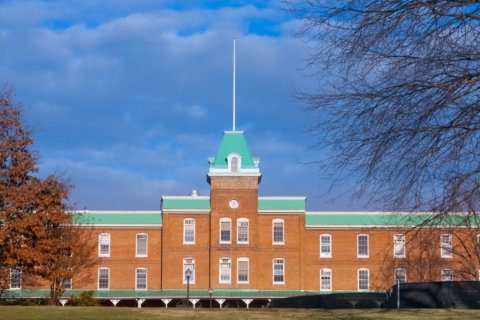WASHINGTON — The D.C. State Board of Education was told at a public hearing Wednesday night that the District government’s faulty investigation into families of students at Duke Ellington School of the Arts last spring has caused lasting damage.
Parents argued that the Office of the State Superintendent of Education’s May report falsely accusing dozens of families with children enrolled at Duke Ellington School of the Arts of residency fraud has traumatized students, tied up families in desperate and frustrating attempts to prove their D.C. residency, and hurt private fundraising, which is critical to supporting the underfunded public magnet school.
The board also learned that one of the families unjustly accused of falsifying their D.C. residency, in fact, lives across the street from the school.
The OSSE released a report in May claiming that a quarter of students at the prestigious Northwest school are not residents of the District and are, therefore, improperly enrolled. Last month, the office revealed that at least 65 percent of the 219 families accused of fraud were found to be D.C. residents after all.
“The audit and investigation has taken a major toll on the entire Duke Ellington community,” said Tia Powell Harris, chief executive officer of the Duke Ellington School of the Arts. “Students who did not know that they were under investigation were traumatically pulled from the school in front of classmates … some missed a day, some missed a month, most missed a week.”
At the public hearing, a parent and attorney representing accused parents who fought the allegations told the State Board of Education that Mayor Muriel Bowser and the D.C. Council share responsibility for the hardship brought on wrongly accused families.
“The mayor delegated to OSSE her responsibilities in this area, apparently with the D.C. Council’s encouragement,” charged Greg Smith, who said the D.C. Public Schools system used to have responsibility for investigating residency at D.C. schools, but responsibility was turned over to an untrained and unprepared OSSE.
“Scores of innocents were wrongly accused and, worse still, OSSE went after our society’s most vulnerable,” said Smith. An estimated 60 percent of students enrolled at Duke Ellington are from low income families.
“For what it’s worth, I live across the street, literally, from the school,” said Lisa Burkett, whose son attends Ellington. “I was accused of residency fraud. This accusation could have destroyed my 30-year federal career.”
Board members seemed sympathetic to the parents’ plight.
“I don’t understand the Gestapo tactics, quite frankly,” said Mark Jones, Ward 5, member of the D.C. State Board of Education.
“It breaks my heart when these families and these children who have struggled and these youth have an opportunity for something great and the system does not work on their behalf,” added Jack Jacobson,, Ward 2, Vice President of the D.C. State Board of Education.
Ari Fitzgerald, president of the Ellington Fund — a nonprofit group that raises private donations for the school — said some donors cut off funding following the faulty report, while others threatened to do the same.
“Our ability to raise private funds was dramatically impacted this year, negatively, by the OSSE investigation,” said Fitzgerald.
Parents said OSSE could have spared families a lot of pain, and eased their investigation, if the agency had simply communicated concerns with parents before leveling residency fraud allegations.
“It’s sort of basic,” said Smith. “You don’t accuse people of fraud before you even talk to them and that’s what happened here.”







